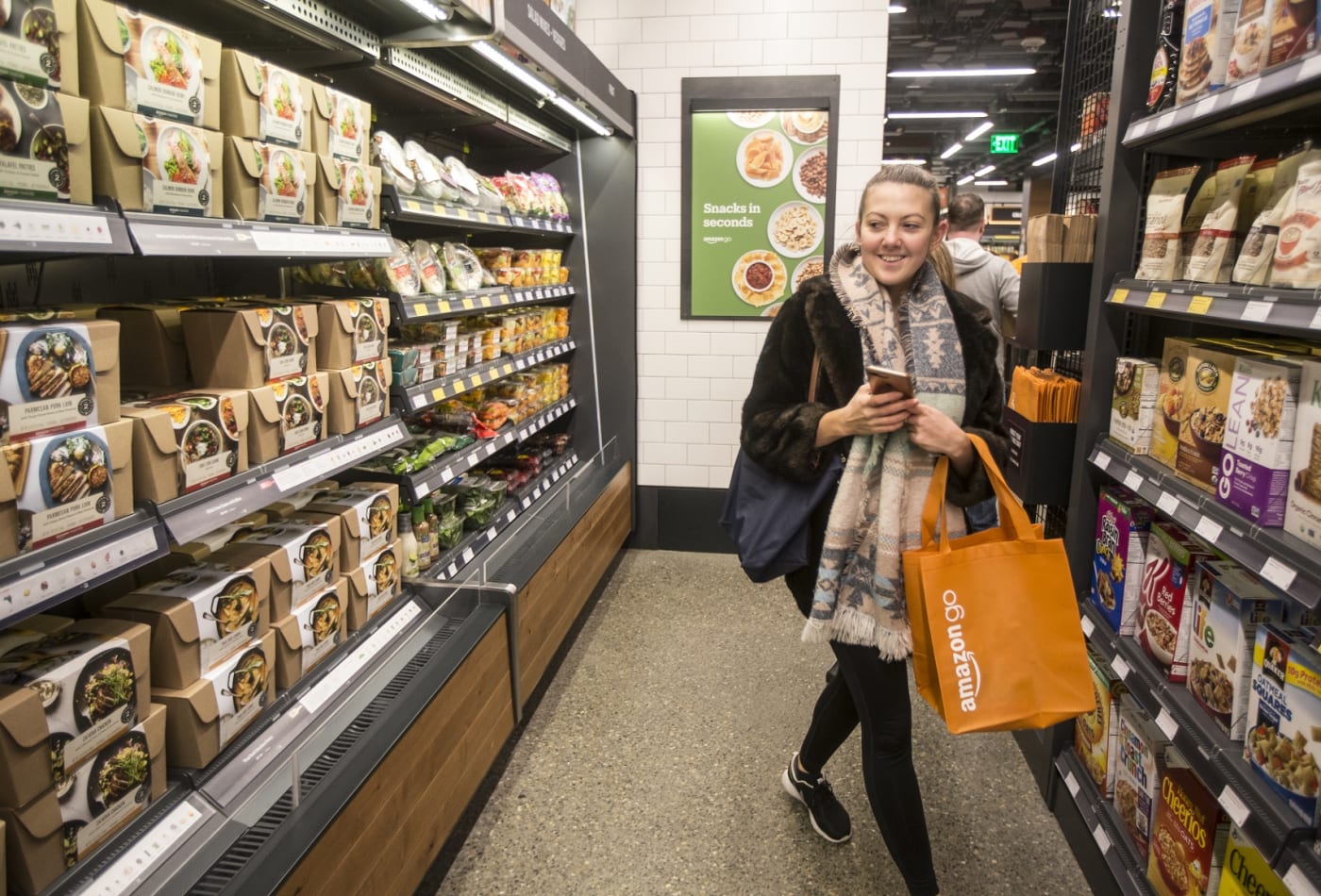It wasn’t long ago that you had to queue up at the till every time you wanted to get something from the supermarket, no matter how much of a rush you were in, or how many items you were buying. Then the self-scanner came along and spread across stores up and down the country.
Disgruntled consumers, appalled that they had to do the scanning and packing themselves, soon got used to self-check-out system and nowadays many of us opt for machine over human interaction.
But in the history of supermarket shopping, one firm believes that self-scanners will have a short shelf life. That company is Amazon.
Last week Amazon opened its very first ‘Supermarket Go’ in Seattle, which the company are hoping will revolutionise the way we shop for our groceries. On entering the store, customers need only to scan a QR code on their phone.
To leave, simply walk right out the door – no checkouts, no scanners. Whilst Amazon have been reluctant to reveal the full details behind the technology powering their new ‘Go’ stores, they say that the supermarket uses “computer vision, deep learning algorithms and sensor fusion”, likening the technology to that of a self-driving car.
It is thought that hundreds of infra-red cameras tracking customer’s movements, combined with weight sensors on shelves will allow the supermarket to know exactly what each customer has picked up and put in their bag and will be able to track if a customer puts the item back on the shelf.
Getting here hasn’t been easy for Amazon, who had planned to open their first Go Supermarket a few years ago, but faced technological difficulties, such as the problem of accurately identifying customers with similar body types.
But the tech giant is hoping that these supermarkets based on their ‘just walk out’ technology will be more than a gimmick, with Amazon’s Chief Financial Officer Brian Olsavsky suggesting that many more of their supermarkets were on their way.
Amazon are not the only company making headlines this week in the world of supermarket shopping. Marks & Spencer have announced that they will be extending their trial of their food refill stores, where customers fill up jars in an attempt to reduce packaging.

The food and clothing company have announced that their Southampton and Manchester stores will be next to adopt the new environmentally friendly layout, where customers are encouraged to reduce their consumption of packaged products, particularly for foods where there need not be any packaging at all, such as pasta, coffee and cereals.
Whilst the concept of reduced- or even zero-waste stores has been around for a while, major supermarkets have been slow to adopt the relatively cheap transformation into greener stores, whilst the most progress seems to be being made amongst smaller independents.
With around 75% of adults wanting to cut down on their plastic consumption according to a recent YouGov survey, it is likely that it will not be long before other supermarkets follow suit.
Image: [Amazon Go]

